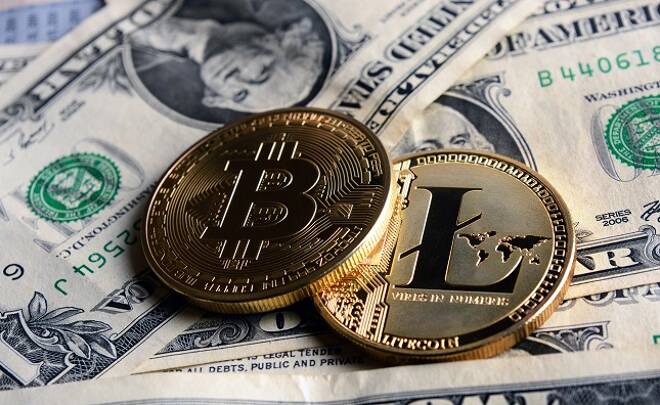Advertisement
Advertisement
Bitcoin Breakout While Ethereum Consolidates
Published: Sep 15, 2020, 15:15 GMT+00:00
Following a ten-day consolidation period, the flagship cryptocurrency seems to have formed an ascending triangle within its hourly chart. A horizontal trendline was created along with the swing highs while a rising trendline developed along with the swing lows. Such a technical pattern forecasts a 7.35% target upon the breakout point.
Bitcoin Breaks Out of Consolidation Pattern, Aiming for $11,300
On Monday, September 14th, the pioneer cryptocurrency appears to have broken out of the consolidation pattern mentioned above. Although BTC opened Monday’s trading session hovering around the triangle’s hypotenuse at $10,366.72, it quickly began to trend up. A steady increase in buying pressure behind Bitcoin at around 1:00 UTC saw its price shoot up over 4% throughout the following 15 hours.
By 16:00 UTC, BTC had turned the x-axis of the ascending triangle into support, confirming the bullish breakout. Bitcoin was able to rise to an intraday high of $10,760.62 but suffered a small correction towards the end of the day. As Monday’s trading session came to an end, the bellwether cryptocurrency had retraced 0.73% to $10,679.95.
Due to the bullish price action, Bitcoin provided investors a daily return of 3.32%. Now, a further spike in demand could see its price surge towards $11,300, which is the target presented by the ascending triangle pattern. On-chain data reveals that there is no significant supply barrier ahead of BTC that will prevent it from achieving its upside potential.
Ethereum’s Price Continues To Be Contained Within a Parallel Channel
Ethereum’s 1-hour chart shows its price seems to be contained within an ascending parallel channel since September 6th. Since then, each time the smart contracts giant rises to this technical formation’s upper boundary, it gets rejected and drops to the lower border. From this point, it tends to bounce back up, which is consistent with a channel’s characteristics.
Such price behavior was seen on Monday, September 14th. Ethereum kicked off the day at a high of $366.58 and quickly dropped to test the support provided by the lower boundary of the ascending parallel channel. This hurdle was able to hold, allowing prices to rebound, just like it has happened in the last eight days.
The rejection from this support level was followed by a 7.38% upswing that saw Ether rise to the parallel channel’s middle line. The second-largest cryptocurrency by market capitalization was able to make an intraday high of $384.61. However, investors appear to have taken advantage of the rising price action to realize profits.
The spike in sell orders led to a 3.44% correction, pushing Ethereum back down to a low of $371.38. But as the day came to an end, ETH recovered some of the losses incurred and closed at $377.28. Investors were able to grasp a daily return of 2.92%.
Ambiguous Outlook for the Top Two Cryptocurrencies
While Bitcoin seems poised for a further advance to $11,300, things do not look optimistic for Ethereum. The parallel channel that the smart contracts giant has formed within its hourly chart looks to be part of a bear flag in higher time frames. The downswing at the beginning of the month created the flagpole while the ongoing consolidation period created the flag.
If this technical pattern is validated, Ether could be bound for a 35% downswing towards $230. Several on-chain metrics suggest that the $360-$370 support level may have the ability to hold since 650,000 addresses are holding over 10 million ETH around this price level. Although such a significant supply wall could absorb some of the selling pressure, slicing though it could be catastrophic for Ethereum.
Given the ambiguous outlooks that Bitcoin and Ethereum present, it is imperative to implement a robust risk management strategy to avoid getting caught on the wrong side of the trend.
For a look at all of today’s economic events, check out our economic calendar.
Konstantin Anissimov, Executive Director at CEX.IO
About the Author
Anissimov Konstantincontributor
Konstantin has extensive experience working with various markets across the world
Advertisement
